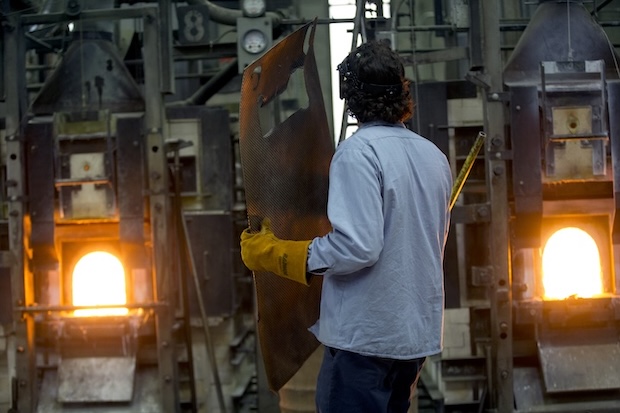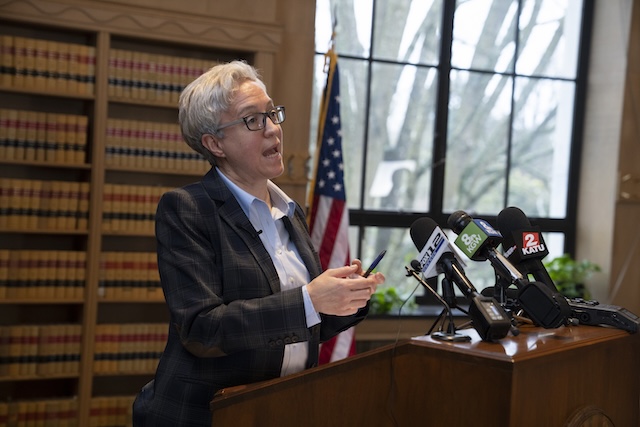Editorial: Uncertainty thrives in Oregon air quality program
Published 3:58 pm Friday, May 30, 2025

- Concern about emissions in Portland from glass manufacturers led to years of testing and analysis. (Kristyna Wentz-Graff/The Oregonian via AP)
Sometimes, Oregon government does not work right. The best of policy intentions brawls with reality and the problem doesn’t get better.
The Oregon Department of Environmental Quality provided on Thursday a nearly perfect example for legislators.
If you wanted to create uncertainty among Oregonians about air quality, you could have lots of expired air quality permits for what could be big polluters. If you wanted to create uncertainty, delays and added costs for businesses, you could have lots of expired air quality permits.
Oregon has a backlog of such permits. Holders of the most complicated permits for releasing bad things in the air have what are called Title V permits. There are about 100 of these permit holders. The DEQ is renewing Title V permits at a rate that it may never erase the backlog of expired permits.
It doesn’t necessarily mean that air quality in Oregon is worse. It doesn’t necessarily mean businesses need to shut down. It doesn’t necessarily mean that businesses with such permits are looking to leave the state or never come to Oregon in the first place.
What it does mean, though, as legislators heard on Tuesday, is that companies are paying tens of thousands of dollars in fees a year and not getting their permits renewed. What it does mean is that these Title V holders don’t know where they stand. And if there’s one surefire way to blow through a budget on a business project, it is to twist the dial up on delay and uncertainty.
“I am not happy about our backlog,” Ali Mirzakhalili, air quality division administrator at the DEQ, said before the House Committee On Climate, Energy and Environment. “I am not sitting here saying: This is just fine. I understand the frustration.”
What is frustrating is that the backlog is not new. It’s been dramatized in state audits. It’s been highlighted in previous years in previous legislative hearings.
So what is to be done?
One problem was funding. The money to pay DEQ permit writers comes from fees paid by permit holders. DEQ said fees were inadequate. The Legislature backed increasing fees in 2023.
Nothing magical happened. DEQ still doesn’t have enough people doing the work, though the fee increase did not kick in immediately. Hiring people for those roles is a challenge – and not only in Oregon. And once people are hired, it can take a year to train a new permit writer. What is DEQ doing to hire more employees for permitting and what more could DEQ do?
What we would have liked to hear Thursday is for DEQ representatives to specifically outline a plan to reduce the backlog. We did not.
Chad Darby, a consultant for Maul Foster Alongi who works with businesses trying to comply with air quality permits, told the committee in his experience some other states do a better job than Oregon. He said Oregon DEQ has a regional structure for permits. Some states place more emphasis on permit writers having specializations, with semiconductor or chemical industries, for instance.
Businesses were apparently unwilling Thursday to testify publicly before the Legislature about their experiences. Did they think it would bring unwanted attention? Did they think it wouldn’t help? Did they fear retaliation?
Legislators and staff at the DEQ can’t calibrate their concern and weigh solutions without good information. Passing such information along outside of a public process undermines the public’s right to understand policy choices. Without more detail, businesses complaining about environmental regulation can come across as just business as usual. They need to speak out in public.








